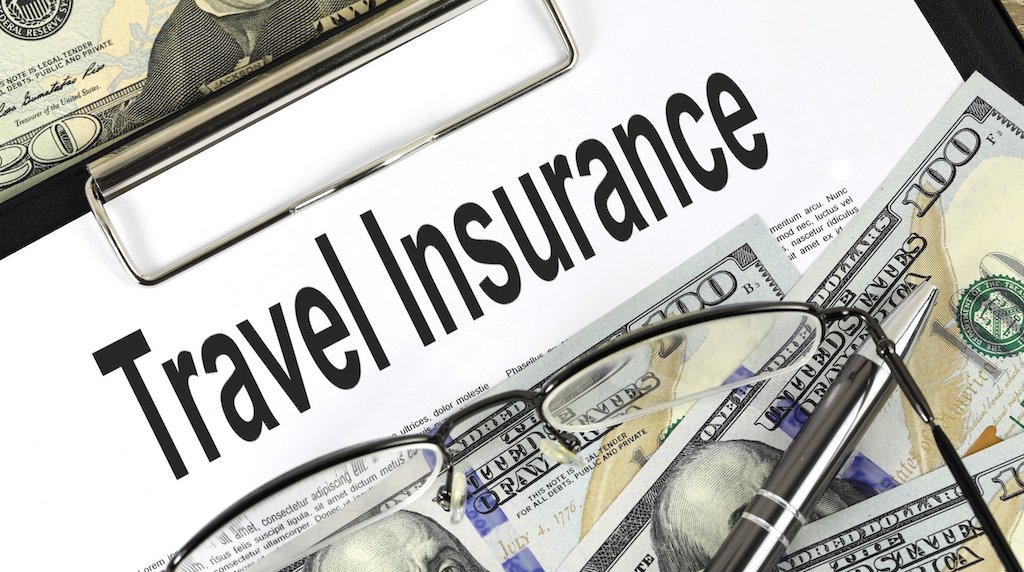What is Travelers Insurance? Travel insurance safeguards against unforeseen events that could disrupt your travel plans. It’s a policy you can purchase to shield yourself from potential financial losses while on the move.
Table of Contents
Types of Insurance / Coverage
1. Trip Cancellation and Interruption Insurance: This is one of the most valuable types of insurance for many travellers. It covers the nonrefundable financial penalties or losses you incur when you cancel a prepaid tour or flight for specific reasons. These reasons can include sickness, death, or layoff affecting you, your travel partner, or a family member. It can also cover situations where your tour company or airline goes out of business or can’t perform as promised. If a family member at home gets sick or if you miss a flight due to reasons outside your control, this insurance can come to your rescue.
2. Comprehensive Insurance: This type of insurance covers a wide range of scenarios, including trip cancellation, medical emergencies, evacuation, baggage loss, and flight issues. Companies like Travelex and Travel Guard offer comprehensive packages that can serve as your primary coverage, ensuring that they cover your expenses regardless of any other insurance you might have.
3. Medical Insurance: While many might already have medical insurance that covers international travel, it’s essential to check the specifics. Some health plans might not cover certain medical emergencies overseas, or they might have limitations. Specialized medical travel policies can provide supplemental coverage, ensuring that you’re protected against high medical bills during your travels.
4. Evacuation Insurance: This insurance covers the cost of getting you to a place where you can receive appropriate medical treatment in emergencies. It can be crucial if you’re travelling to remote areas where medical facilities might not be up to the mark. In extreme cases, this can involve medically equipped private jets, which can be incredibly expensive.
5. Baggage Insurance: Traveling with expensive items like laptops, cameras, or jewellery? Baggage insurance can cover the loss, delay, or damage of these items. It’s essential to check the maximum reimbursement limits and understand what’s covered and what’s not.
6. Flight Insurance: Also known as “crash coverage,” this is a type of life insurance that covers you when you’re on the aeroplane. Given the rarity of plane crashes, many consider this insurance unnecessary. However, for those who want peace of mind during their flights, it’s available.
7. Collision Coverage: If you’re renting a car during your travels, collision coverage can be invaluable. It covers damages to the rental vehicle in case of an accident. Some comprehensive travel insurance plans include this, or it can be purchased as an upgrade.
8. “Cancel for Any Reason” (CFAR) Policies: These policies are more flexible and allow you to cancel your trip for any reason, providing some level of reimbursement. They’re typically more expensive but can be worth it for those uncertain about their travel plans, especially in unpredictable situations like pandemics.
9. Theft Protection: Given the high value of items many travellers carry, theft protection can be crucial. It covers the loss of items like laptops, tablets, cameras, and smartphones. Before purchasing, it’s essential to understand how the insurance company determines the value of stolen objects and any maximum reimbursement limits.

When is Travel Insurance Worth It?
Travel insurance is an essential consideration for many travellers, especially when it comes to safeguarding one’s health during international journeys and ensuring the overall trip’s protection. Here are some factors to weigh when deciding if travel insurance is the right choice:
1. International Travels: If you’re venturing outside your home country, travel insurance becomes even more crucial. Many health insurance plans might not offer coverage outside their country of origin, making travellers vulnerable to high medical bills in foreign lands.
2. Prepaid, Non-refundable Bookings: Have you invested a significant amount in non-refundable tours, day trips, or activities? If so, travel insurance can be a safety net, ensuring you don’t lose your money if unforeseen circumstances force you to cancel or change your plans.
3. Remote Destinations: If your journey takes you to far-flung areas with limited healthcare facilities, travel insurance becomes indispensable. In such places, getting adequate medical care can be challenging, and evacuation to a better-equipped location can be exorbitantly expensive.
4. Complex Itineraries: Are you planning a trip with multiple connecting flights or destinations? The more complex your travel plans, the higher the chances of something going awry. Missed connections, flight cancellations, or delays can disrupt your itinerary, leading to additional expenses.
5. Flexibility in Cancellation: If you’re someone who values the flexibility to cancel trips without incurring heavy losses, consider policies that offer “Cancel for Any Reason” (CFAR) coverage. With CFAR, you can cancel your trip for almost any reason and still receive partial reimbursement, provided you cancel at least 48 hours before your scheduled departure.
6. Credit Card Travel Protection: Before purchasing travel insurance, it’s worth checking the benefits offered by your credit cards. Many travel credit cards provide coverage for lost luggage, flight cancellations, and delays. Cards like the Chase Sapphire Preferred® and the American Express® Gold Card offer various travel-related protections. However, these benefits might not be as comprehensive as those provided by dedicated travel insurance policies.
7. Evaluate Your Existing Coverages: If all your reservations can be cancelled without penalties and if your domestic health insurance policy offers sufficient coverage during your travels, then travel insurance might not be necessary. However, always ensure you’re not leaving any gaps in your protection.
When trying to decide if travel insurance is the right choice, consider your destination, planned activities, and the trip’s overall cost. If you’ve invested a significant amount in prepaid, non-refundable activities or are travelling to places with potential risks, investing in a comprehensive travel insurance plan can offer peace of mind and financial protection.
When You Might Not Need Travel Insurance
While travel insurance can be a lifesaver in many situations, there are instances where it might not be necessary. Here’s a breakdown of scenarios where you might consider skipping the additional coverage:
1. Domestic Travels: If you’re journeying within the U.S., such as a trip to Florida or a road trip around the American Southwest, you might not need additional insurance. Domestic travels are typically less costly, and most people plan these short trips only a few weeks in advance. On average, domestic trips span about four days and cost around $576 per person. Moreover, if you have medical insurance, it’s likely to cover any emergencies that arise within the country.
2. Credit Card Benefits: Before making any insurance purchase, it’s wise to check the benefits associated with your credit cards. Some cards, like the Chase Sapphire Preferred, offer built-in trip interruption insurance. This coverage can reimburse up to $10,000 per person if your journey is cancelled or shortened due to specific reasons, such as illness or severe weather. Other cards, like the Citi Prestige and Citi ThankYou Premier, also offer baggage and trip cancellation protection. If your card provides comprehensive travel benefits, you might not need additional insurance.
3. Flight-Only Travels: For trips where you’re only booking a flight, insurance might not be essential. While it can be tempting to insure a costly flight, understanding your rights as a passenger can save you money. If your flight is cancelled, airlines generally offer the next available seat on the subsequent flight to your destination. While insurance won’t expedite this process, knowing your rights can. If you do face significant delays or cancellations, services like AirHelp can assist in securing compensation.
4. Seeking Flexibility: If your primary reason for considering insurance is to maintain flexibility in your plans, there might be better alternatives. Instead of purchasing comprehensive insurance, opt for accommodations or services that offer free cancellations. This way, you can change your plans without incurring penalties.
5. Medical Coverage: If you’re travelling to major cities like London, your existing medical insurance might cover “customary and reasonable” hospital costs. However, always verify the specifics of your policy before deciding against additional medical travel insurance.
6. Cruises: While cruises can be a significant investment, it’s essential to evaluate the specifics of your trip. If you’re cruising during hurricane season, insurance can be invaluable. However, if you’re travelling during a less risky period and your credit card offers comprehensive travel benefits, you might not need additional coverage.
While travel insurance can provide peace of mind and financial protection, it’s not always necessary for every trip. Evaluate the nature of your journey, the potential risks, and any existing coverages you have before making a decision.
How to Purchase Travel Insurance?
You can either use comparison sites like InsureMyTrip, Squaremouth, and TravelInsurance.com to evaluate policies and prices across various travel insurance companies or buy directly from providers like Allianz and AIG. On average, travel insurance costs range from 4% to 10% of your non-refundable trip expenses. So, while it might seem like an added cost, it could be a small price to pay for peace of mind.
Conclusion
Travel insurance can be a valuable investment, especially for international trips where unforeseen medical or family emergencies might force you to cut your journey short. By spending a fraction of your trip’s cost on insurance, you could potentially save thousands in the long run.
FAQ
Will travel insurance cover pregnancy?
Travel insurance may cover pregnancy-related complications, but it’s essential to read the policy details. Most policies exclude normal childbirth but might cover unexpected complications.
What travel insurance do I need?
The type of travel insurance you need depends on your trip’s nature, destination, and personal circumstances. At a minimum, consider coverage for medical emergencies, trip cancellations, and lost baggage.
What travel insurance do I need for a cruise?
For cruises, consider comprehensive coverage that includes medical emergencies, trip cancellations, and interruptions, especially if you’re cruising during hurricane season or to remote destinations.
How does travel insurance work?
Travel insurance works by reimbursing you for covered losses during your trip. In the event of a claim, you’ll submit proof of your loss to the insurance company for compensation, subject to policy terms.
Can travel insurance be cancelled?
Yes, many travel insurance policies offer a review period (often 10-15 days) during which you can cancel the policy for a full refund, provided you haven’t started your trip or filed a claim.
Can travel insurance be extended?
Yes, if your trip gets extended, many insurance providers allow you to extend your coverage. It’s essential to request the extension before your original policy expires.
Why is travel insurance necessary to travel abroad?
Travel insurance is crucial for international trips as it covers unexpected medical emergencies, trip cancellations, and other unforeseen events, ensuring you’re not faced with hefty bills abroad.
Does travel insurance cover natural disasters?
Some policies offer coverage for trip cancellations or interruptions due to natural disasters. However, the coverage might be contingent on when the policy was purchased relative to the disaster’s occurrence.
Are pre-existing medical conditions covered by travel insurance?
Coverage for pre-existing conditions varies by policy. Some offer coverage if the policy is purchased within a specific period after booking the trip, while others might exclude them entirely.
How do I choose the best travel insurance provider?
Consider your trip’s specifics, read customer reviews, and compare coverage options and prices. Ensure the provider is reputable and has a good track record of handling claims.





